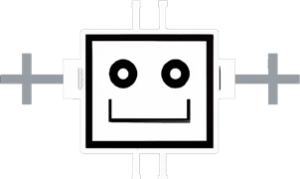The inaugural Global AI Safety Summit, held at the historic Bletchley Park, England, has set its sights on accelerating healthcare advancements while mitigating potential risks. The summit aims to unite global leaders and tech aficionados to deliberate on appropriate regulatory measures for AI technology.
Concerns about the potential misuse of AI, including cyber threats and bio-weapon development, as well as the prospect of losing control over AI, are high on the agenda. The healthcare sector, in particular, eagerly anticipates the benefits AI can bring to the industry, while also stressing the need for protective frameworks.
Diana Kennedy, Group Chief Technology Officer Bupa, a leading player in private healthcare insurance with a £12bn (US$14bn) revenue, underscores the importance of a rigorous framework in AI-driven healthcare innovation. She acknowledges the transformative role of AI in healthcare, citing Bupa’s AI-powered mental health service, BluaU, as an example. This application leverages data points to analyze the user’s mental health and provide personalized recommendations.
Despite these promising developments, Kennedy emphasizes the hurdles that need to be overcome for AI to realize its full potential in healthcare. Ethical guidelines and regulations, she asserts, should be the compass guiding the future development and deployment of AI in healthcare. Upskilling healthcare workers, especially those in direct contact with patients, is also crucial, she adds.
To foster innovation and upskilling, Bupa has initiated a global hackathon event, B Disruptive, open to all its 80,000 employees. This effort aims to familiarize as many colleagues as possible with generative AI and tap their ideas to enhance customer experiences.
In conclusion, Kennedy affirms that AI capabilities can fast-track progress in healthcare. She calls for collective efforts to nurture AI’s possibilities, foster innovation, and simultaneously establish stringent frameworks to curtail potential risks.
As a health-focused writer, I wholeheartedly agree with Kennedy. The promise of AI in healthcare is immense, from early detection and precise interventions to personalized care. However, it’s crucial to navigate this journey with caution, ensuring ethical guidelines and safety measures are in place. Let’s harness AI’s potential responsibly, keeping patient safety and privacy at the forefront.
Remember, while technology is an enabler, it’s the human touch that truly heals.
Our content is enriched by a variety of data from different sources. We appreciate the information available through public web sites, databases and reporting from organizations such as:
